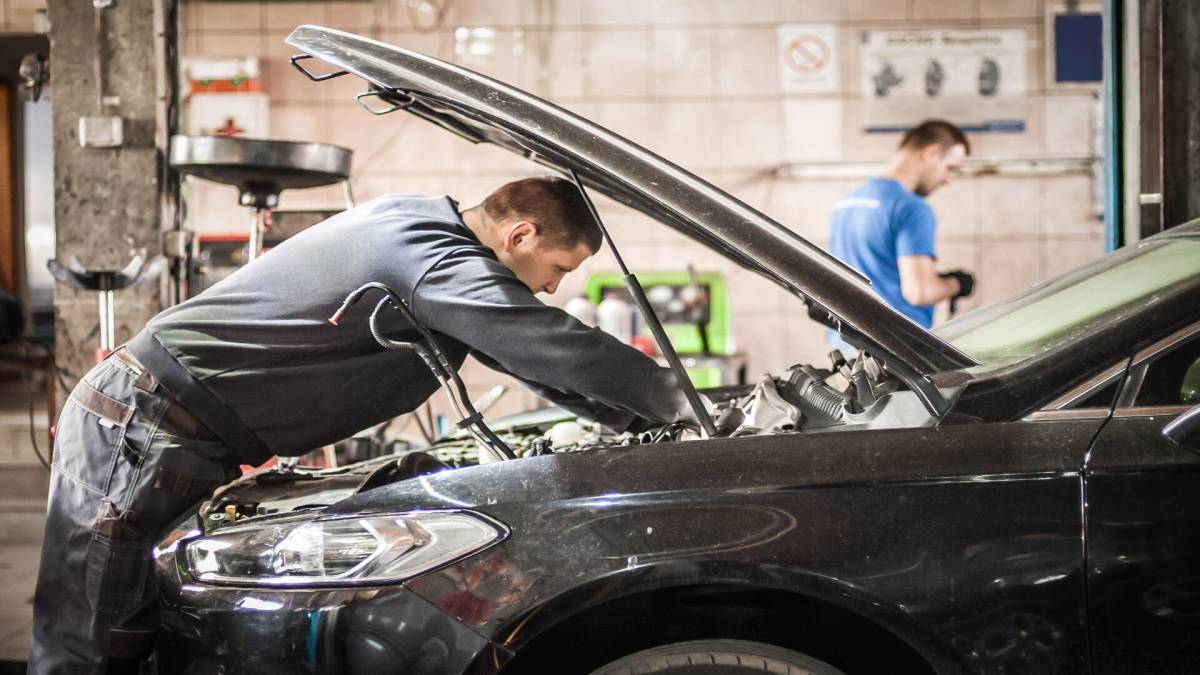Auto parts aftermarket companies have faced a series of economic issues that have reduced their revenue over the last two years.
Rising inflation, increased interest rates, and consumers who are cautious with discretionary spending have affected their profits.
💵💰Don’t miss the move: Subscribe to TheStreet’s free daily newsletter💰💵
A major headwind on the industry since 2023 has been the declining consumer interest in electric vehicles. As inflation and high interest rates raised the prices of EVs, fuel costs for internal combustion vehicles plummeted.
Related: Major auto parts company considers filing Chapter 11 bankruptcy
It began to make more economic sense for consumers to buy ICE vehicles that were less expensive and more convenient to refuel at gas stations, instead of searching for an EV charger to recharge their battery.
Tesla has become the poster child for declining EV sales as the electric vehicle maker’s sales in April declined in its top three markets — U.S., China, and Europe — after suffering a 13% year-over-year delivery decline in the first quarter of 2025, according to Morningstar data.
All of these economic issues have led auto parts suppliers to close stores and sometimes file for bankruptcy.
Auto parts suppliers face economic issues
Wheel Pros, which operates as auto parts distributor and retailer Hoonigan, filed for a prepackaged Chapter 11 bankruptcy on Sept. 9, 2024, with plans to hand 85% of its new equity interests to holders of first-lien claims and 15% to new first-lien lenders who will backstop the debtor’s exit term loan.
Accuride Corp., another top manufacturer of wheels and wheel end products for commercial trucks and trailers filed for Chapter 11 bankruptcy protection on Oct. 9, 2024, seeking a consensual restructuring of its debt to continue operating as a going concern.
Some auto parts suppliers closed stores but didn’t need to file for bankruptcy.
Struggling auto parts retailer Advance Auto Parts, with nearly 5,000 retail stores, accelerated its strategic turnaround plan to close 727 corporate-owned and independent locations, as well as four West Coast distribution centers, by the end of March 2025.
And now, a major auto parts supplier has filed for bankruptcy.
 Auto parts supplier Marelli Holdings files for Chapter 11 bankruptcy.
Auto parts supplier Marelli Holdings files for Chapter 11 bankruptcy.
Shutterstock
Marelli files for Chapter 11 bankruptcy protection
Global auto parts giant Marelli Holdings Co., which is owned by KKR, filed for Chapter 11 bankruptcy protection with a prearranged restructuring agreement to wipe out billions of dollars of debt and hand ownership of the company to its senior lenders.
Related: Popular trucking auto parts chain closing, no bankruptcy yet
The auto parts company, whose headquarters are located in Saitama, Japan, with North American headquarters in Southfield, Mich., listed $4.9 billion in total funded debt in its filing on June 11, which included a $350 million emergency loan facility, provided by Development Bank of Japan and Mizuho Bank, according to a declaration from CEO David Slump.
The emergency loan is senior to a $4.55 billion senior loan facility, led by Mizuho as agent.
The debtor listed $1 billion to $10 billion in assets and liabilities in its petition. Its largest unsecured creditors include Stellantis, owed over $453 million; Nissan, owed over $313 million; Bosch Group, owed over $45 million; and Mazda, owed over $30 million.
The debtor reached a restructuring support agreement with 80% of its senior secured lenders after a year of negotiations.
More bankruptcy:
- Iconic auto repair chain franchise files Chapter 11 bankruptcy
- Popular beer brand closes down and files Chapter 7 bankruptcy
- Popular vodka and gin brand files for Chapter 11 bankruptcy
The agreement calls for a $1.1 billion new money debtor-in-possession financing provided by members of the debtor’s Ad Hoc Group of senior lenders, a 47.5% rollup of senior loan claims, repayment of the $350 million emergency loan in cash, an 11% cashout of senior loan claims held by Japanese lenders, a reinstatement or payment in full of all general unsecured claims, and conversion of a portion of the DIP facility into 100% of the equity of the reorganized company.
The debtor seeks a reorganization plan confirmation order within 180 days, according to the declaration.
Marelli blamed several prepetition challenges that forced the company to file for bankruptcy, including the effects of the Covid-19 pandemic and post-pandemic market challenges and headwinds.
Among the economic issues were supply chain challenges of labor shortages, disruptions, and high costs; high inflation and rising prices of raw materials; and declining customer volumes.
The company also blamed a decrease in customer demand for electric vehicles in 2023, due to a combination of high inflation and lower fuel costs for internal combustion engine vehicles, which shifted the cost and benefits of buying an EV.
The decreased interest in EVs triggered a rapid volume reduction beginning in May 2024 as automakers who had a surplus of EV inventory no longer had an immediate need for Marelli’s components, leading to a decline in revenue in 2024 compared to 2023.
The company also dealt with liquidity issues, and $150 million in annual interest payments put pressure on the debtor’s cash flow.
Related: Classic auto parts company files for Chapter 11 bankruptcy
